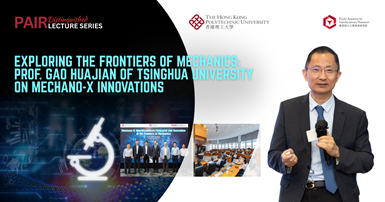
Prof. GAO Huajian of Tsinghua University delivers “Mechano-X: Interdisciplinary Research and Innovation at the Frontiers of Mechanics”
13 Jun, 2025
PAIR Distinguished Lecture Series
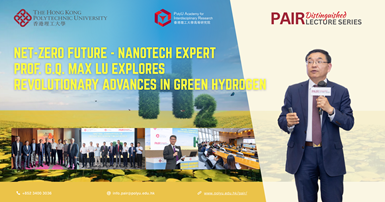
Net-zero future - Nanotech expert Prof. G.Q. Max LU explores revolutionary advances in green hydrogen
20 May, 2025
PAIR Distinguished Lecture Series
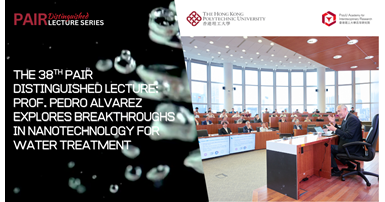
The 38th PAIR Distinguished Lecture: Prof. Pedro Alvarez explores breakthroughs in nanotechnology for water treatment
8 May, 2025
PAIR Distinguished Lecture Series

Prof. SO Kwok-fai shares lifestyle interventions for mental health at PAIR Distinguished Lecture
17 Apr, 2025
PAIR Distinguished Lecture Series

Notable scholar Prof. Jesse ZHU advises graduate students on research career preparation at PAIR Distinguished Lecture
12 Mar, 2025
PAIR Distinguished Lecture Series
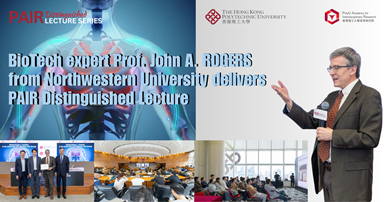
Biotech expert Prof. John A. ROGERS from Northwestern University delivers PAIR Distinguished Lecture
19 Feb, 2025
PAIR Distinguished Lecture Series
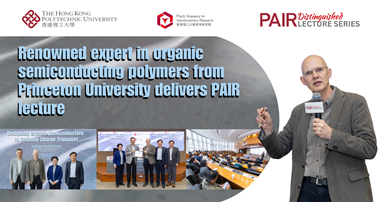
Renowned expert in organic semiconducting polymers from Princeton University delivers PAIR lecture
14 Jan, 2025
PAIR Distinguished Lecture Series
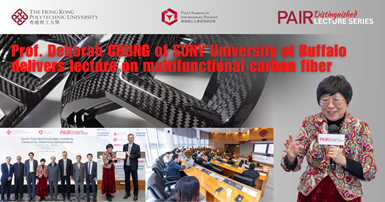
Prof Deborah D.L. CHUNG delivers PAIR Distinguished Lecture on 'Explorations on the fascinating realm of multifunctional carbon fiber'
17 Dec, 2024
PAIR Distinguished Lecture Series
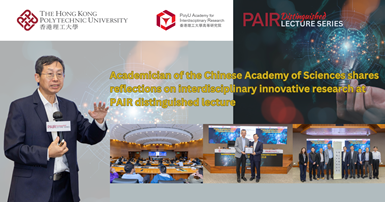
Academician of the Chinese Academy of Sciences Prof. ZHENG Quanshui shares reflections on interdisciplinary innovative research at PAIR distinguished lecture
21 Nov, 2024
PAIR Distinguished Lecture Series
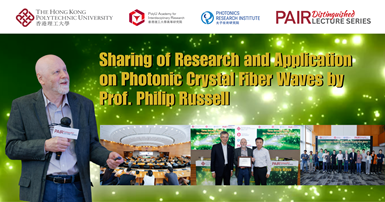
Sharing of Research and Application on Photonic Crystal Fiber Waves by Prof. Philip Russel
5 Nov, 2024
PAIR Distinguished Lecture Series


